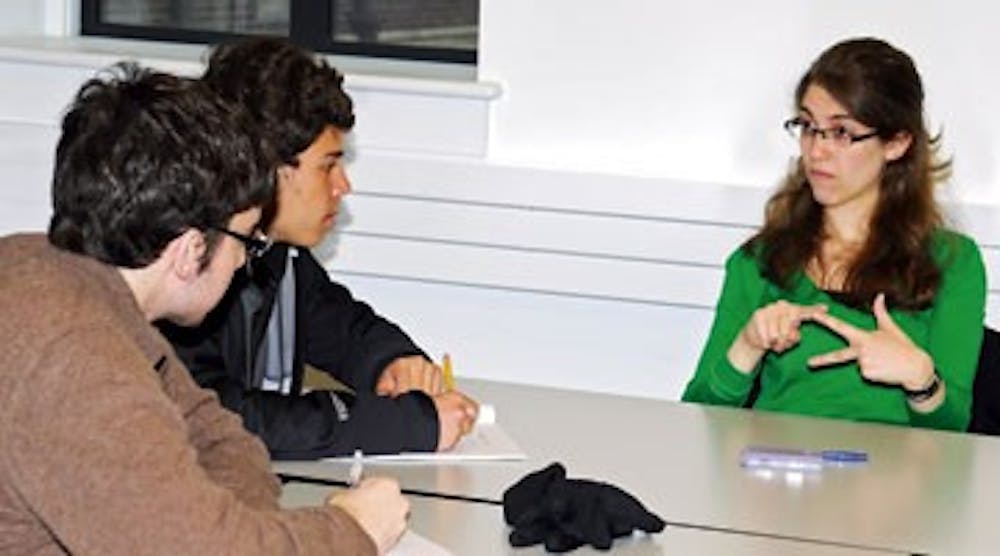
The Undergraduate Assembly is beginning work on an initiative to add American Sign Language to the list of courses that can fulfill Wharton's foreign-language requirement.
The initiative - headed by Wharton and Nursing sophomore and Undergraduate Assembly volunteer member G.J. Melendez-Torres and College sophomore Matt Amalfitano, chairman of the UA's Academic Affairs committee - began when Wharton freshman Andrew Roberts enrolled in ASL, only to find out later that it does not fulfill the language requirement.
After researching other top business schools to see if they accept ASL to fulfill language requirements, Roberts learned that many of them do.
"Wharton's language requirement provides students the opportunity to attain global and cultural nuance through the study of a language other than English," Scott Romeika, director of Academic Affairs and Advising for Wharton's Undergraduate Division, wrote in an e-mail. "ASL is encouraged as an elective and can still count toward the general education curriculum."
He added that many Wharton students continue to study foreign languages - or ASL - after they have fulfilled their language requirement. Students must develop "competency" in a language, according to the school's Web site, and that usually entails four semesters of study.
Amalfitano emphasized that part of the reason ASL does not fill Wharton's foreign language requirement is that it is an American language, not a foreign one.
Melendez-Torres noted that while ASL does not count toward the language requirement at Wharton, it does count in the College of Arts and Sciences and the School of Nursing - the School of Engineering and Applied Science has no foreign language requirement.
"To exclude ASL out of all of the other languages that Wharton offers is nonsensical," he said.
"There are deaf people in business. If someone is fluent in ASL that would be very valuable," Amalfitano argued. "Wharton does accept ancient Greek and Latin when no one speaks those languages either."
But Wharton sophomore Daniel Green disagreed.
"ASL is a valid language, but I do not see how it is useful in the workplace," he said, explaining that he has taken Spanish since the eighth grade. He said Spanish has helped him appreciate the diversity of the workplace.
Melendez-Torres said he took ASL over the summer and called it a valuable language and culture.
"We need to take a step back and see why Wharton does not accept ASL for the language requirement," he said.
Related StoriesUA discusses American Sign Language, shuttles and drainage - News
The Daily Pennsylvanian is an independent, student-run newspaper. Please consider making a donation to support the coverage that shapes the University. Your generosity ensures a future of strong journalism at Penn.
DonatePlease note All comments are eligible for publication in The Daily Pennsylvanian.





